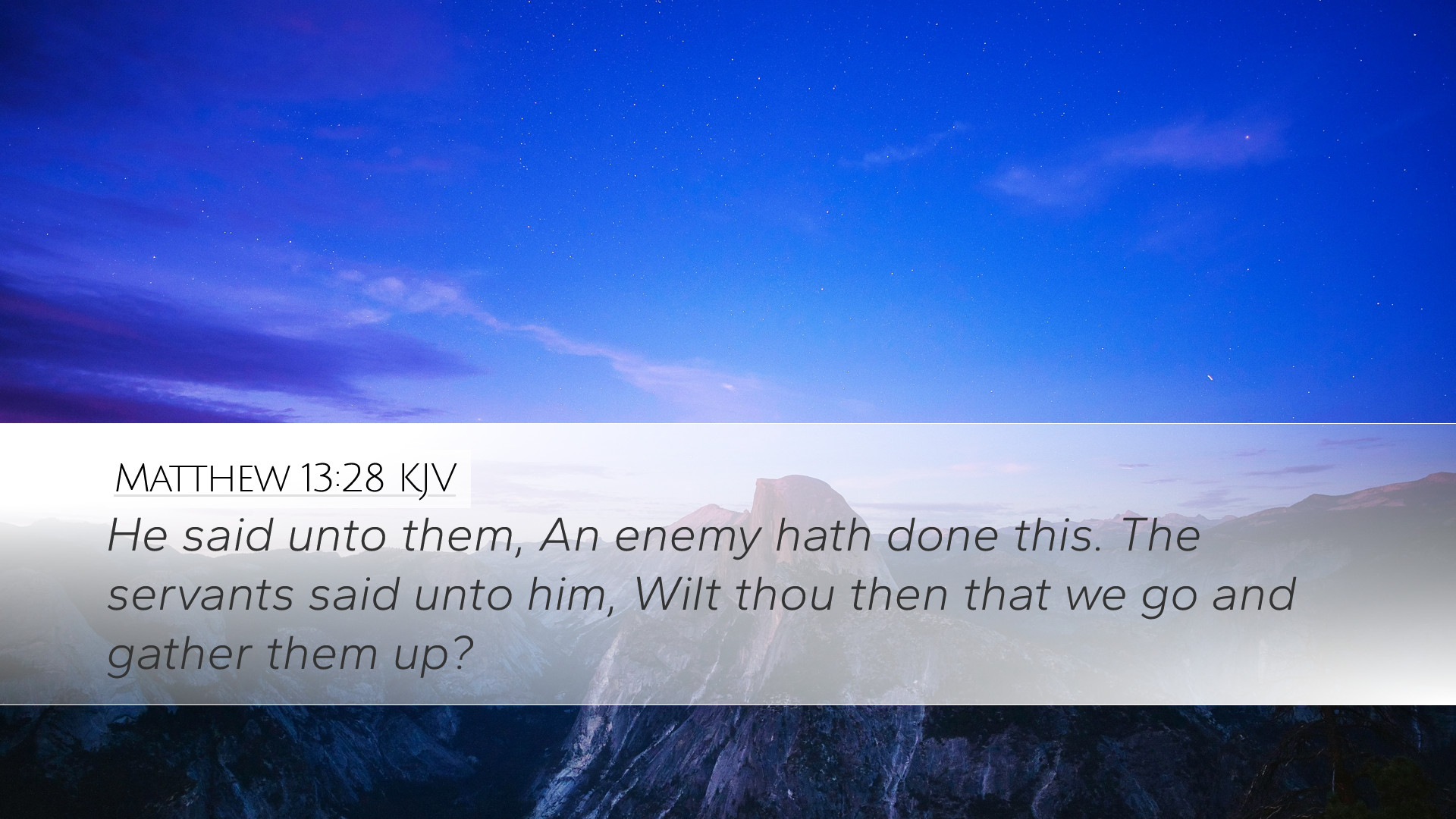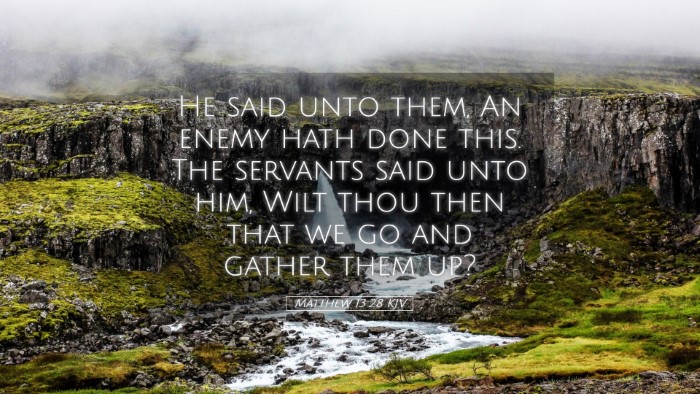Commentary on Matthew 13:28
Verse Text: "He said to them, 'An enemy has done this.' The servants said to him, 'Then do you want us to go and gather them up?'" (Matthew 13:28, ESV)
Introduction
This verse falls within the Parable of the Weeds, where Jesus illustrates the coexistence of good and evil in the world. On first glance, it presents a critical question regarding the response to malign influences in the community of faith. Understanding this verse requires an exploration of the themes of diligence, patience, and the eventual triumph of good over evil.
Contextual Background
To fully grasp the significance of Matthew 13:28, we must place it within the broader context of the parable that Jesus teaches in Matthew 13:24-30. This parable speaks of a man who sows good seed in his field, only for his enemy to come and sow tares among the wheat. The servants' inquiry regarding the desired action against the tares leads to the response of the Master, representing God, who emphasizes the importance of letting them grow until the harvest.
Analysis of Key Terms
- “Enemy”: This term signifies malevolence and opposition, likely referencing Satan, the ultimate adversary of God's work (as noted by Matthew Henry). The presence of the enemy highlights the reality of spiritual warfare present in believers' daily lives.
- “Gather them up”: This phrase proposed by the servants reflects human inclination towards immediate resolution of problems and the desire to purify the community. Adam Clarke suggests that it represents the urgency with which believers often approach sin and falsehood in their midst.
Theological Implications
The Lord's response, "An enemy has done this," affirms several theological truths:
- The Nature of Evil: The introduction of tares into the world is a clear demonstration of the intrusion of evil, an act not borne of God but of an adversarial force, which illustrates the broader cosmic battle between good and evil.
- Patience in Judgment: The Master’s instruction is to allow both wheat and tares to grow together until the harvest. This indicates a divine patience and a wisdom that transcends human understanding. Albert Barnes elaborates by emphasizing that God's timeframe for judgment is different from that of humanity.
- The Final Harvest: This parable ultimately culminates in a definitive harvest, pointing toward eschatological truths regarding final judgment, where good will be separated from evil. The assurance is that justice will prevail in God's timing.
Practical Applications
This verse provides several applications for the life of believers:
- Understanding of Spiritual Warfare: Believers must recognize that evil does not arise by chance but is the work of a deliberate enemy. Awareness is crucial in spiritual warfare.
- Balanced Response to Evil: The inclination to act swiftly against perceived evil may lead to over-zealousness. Clarke warns against pulling up those who seem tainted without a heart of grace and wisdom. The Kingdom of God requires discernment.
- Trust in Divine Justice: While observing the presence of evil may be disheartening, believers are called to trust the character of God who promises judgment. Embracing this allows for peace in the face of uncertainty.
Conclusion
Matthew 13:28 serves as a profound reminder of the coexistence of good and evil in this world and God's ultimate control over the unfolding of redemptive history. The servant's inquiry juxtaposed with the response from the Master leads believers to consider their approach to sin and evil. In studying this, pastors and theologians are called to guide their communities with a spirit of patience, discernment, and trust in God's perfect plan.
References from Commentaries
The insights and interpretations of this passage drawn from the commentaries of Matthew Henry, Albert Barnes, and Adam Clarke provide a comprehensive understanding of the complexities presented in Matthew 13:28. They collectively encourage a posture of awareness and patience while emphasizing trust in God’s sovereign plan for His Kingdom.


